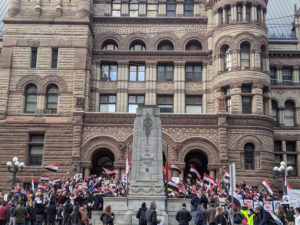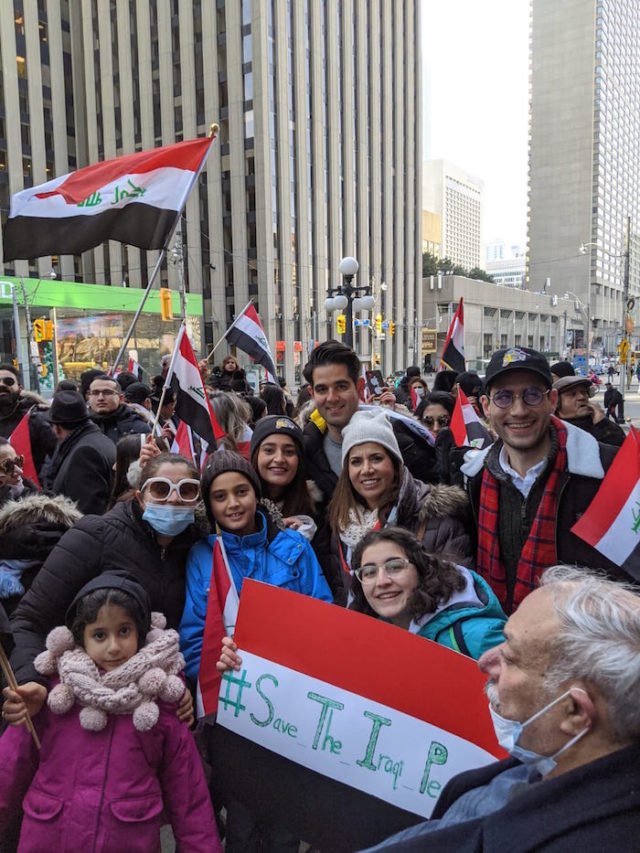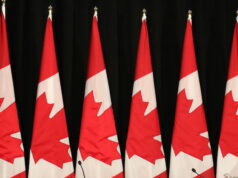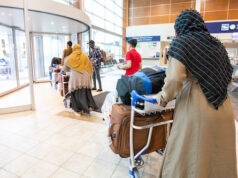Yasmine Mousa
Iraqi protesters have endured so much for the sake of their homeland. Since October 1, 2019, they have been rallying in Tahrir Square, in the heart of Baghdad and southern provinces against 16 years of corruption, unemployment and inefficient public services. The protests later escalated to calls for overthrow of the administration and to stop the Iranian regime’s meddling in Iraq’s affairs. The protesters have been gassed, beaten, kidnapped, assassinated, stabbed and shot at by masked or anonymous figures. Until this day, over 800 protesters have been killed by snipers or live ammunition. Almost 25,000 people have been injured, detained or went missing. Still no one has been held accountable for these unjustifiable atrocities committed against the innocent and unarmed.
Iraqis believe that the regime and its benefactors are the mother of all maladies in Iraq. Iraq has one of the largest oil reserves. It is the second largest oil producer in The Organization of the Petroleum Exporting Countries (OPEC).However, 23% of the population live below the poverty line because of rampant corruption. The country’s health, education and infrastructure have suffered a deep plunge since the 2003 US invasion. The life condition of Iraqis does not correspond with Iraq’s massive wealth.
There is a wide rift between the regime and the Iraqi people. The Iraqi street is not hiding its disdain towards the Iranian regime’s meddling in Iraq’s affairs. The slogans at the demonstrations showed the resentment of the protesters towards the political climate in Iraq. Loosely translated, they chanted, “We want a homeland,” and “Iran Out. Out. Baghdad, Kerbala, Dhi Qar, remains a free land.” Naturally it was a huge blow to the Iranian regime who deems the Shiite Crescent is under its wing, while it was those provinces who basically revolted Iran’s intervention.
In November, I was in Baghdad. I am no stranger to this land. Until the summer of 2003, Baghdad was my home. The construction of Baghdad International Airport was my first job after graduation as a civil engineer more than thirty years ago. The last time I was there was in 2010-11, after a seven-year absence, to work for the New York Times.
Nowadays, I rely on a group of young drivers during my visit to Baghdad. Khaled, 22, apologized that his car was not so clean. “I have been in Tahrir Square for the last six days,” he said. He was suffering from a severe cough and a nasty allergy because of the brutal usage of tear gas and other substances by the security forces. He said, “They are ruthless. The religious parties, backed by the Iranian regime are ruining the country.” Hassan, 26, another driver, has barely finished elementary school, due to the sectarian war. He said, “I don’t know who Saddam is, but my parents tell me he is a villain. Those people have been in power for sixteen years. I have not seen a single hospital or school built.” It is obvious that the usage of excessive force by the Iraqi regime is not going to deter defiant Hassan nor Khaled from going to Tahrir Square. Hassan said, “Everybody goes there, men, women, children.” He added, “I will keep going even if they riddle me with bullets.”
Lately, there was a one million demonstration in Iraq. The demonstrators denounced the US and Iranian strikes on Iraq’s soil. Following the assassination of Iranian general Qassem Soleimani by the US on Iraqi soil, the Iraqi parliament voted for the withdrawal of the US forces from Iraq. The next day, there was a petition signed by millions of Iraqis challenging the parliament stating, “The Iraqi Parliament does not represent me.” They were afraid of the carnage the militias could unleash If the US withdraws from Iraq.
Thanaa, a retired teacher was confused that the revolt against the government’s atrocities is exclusive on Baghdad and the southern parts of Iraq. She said, “If only the demonstrations spread to the rest of the country, it will be much more effective. Maybe, the world and international community will pay more attention to what is going on in Iraq. It will give it more weight.”
Women are playing a vital role in these demonstrations. They are the aid worker, doctor, cook, the rescuer, caregiver and activist. They are expressing their voices and demands in articulate means.
While in Baghdad, my son in Toronto wanted me to bring back Iraqi flags. At the store, the young saleswoman asked, “Are you going to Tahrir square today?” I told her that I was buying the flag to take with me to Toronto, Canada. I asked her if she was going. She said that she goes on Fridays. “Some of my friends are there all the time to look after the protesters,” she said with a smile. She suffers from respiratory illness following exposure to substances used by the government to control the demonstrators.
On employment, she complained about lack of fairness in getting a job. A graduate of information technology, yet she can’t find a job in her field. She said, “Unless you are member of some religious party, the appropriate job remains a dream.” She noted that the administration would rather assign a job to a person who could barely read and write than to someone with the appropriate qualifications. She said that nepotism and dubious affiliation to a religious party are the required job skills.
Her co-worker, a burly young man, entered while I was paying. She told him in a soft voice, “She is taking the sashes and flags to Toronto.” He said, “Spread the word to the world sister, let the world know what an unethical government we have. We are deprived from our basic rights, electricity, clean water, education, health care, and a functional infrastructure.” When I was in Baghdad, the government cut off the internet for almost six days. He sighed, “Is that too much to ask from one of the richest governments in the world?” He gave me an extra small flag. “On the store,” he said. I was overwhelmed by his grace. In a benevolent tone he said, “Tell them, from Baghdad to Toronto with love.”
Since my return from Baghdad, two rallies have been organized in front of the Old City Hall in Toronto by the Iraqi community. The theme was, “Stop violence against the Iraqi people.” The event featured fundraising in support of the protesters in Iraq. Some participants at the rallies cried as they sang the national anthem of Iraq, ‘My homeland’ followed by the national anthem of Canada, ‘Oh Canada.’ Garnett Genuis, Member of Parliament for Sherwood, Saskatchewan, was one of the dignitaries in attendance.

While leaving the Old City Hall venue of the peaceful rally, unscathed, I remembered the Arab proverb: The hand in water isn’t like the hand in fire. I will never take for granted that my hands are no longer in fire, in this magnificent city. Yet, will not spare any effort, to alleviate the pain of the people whose hands are in or on fire.
The invasion of Iraq caused the biggest diaspora in modern history. A close friend of mine who remains in Iraq said over the phone, “All we want is to live like normal human beings. A life bereft of fear and agony. The world is focused on the Iran-US tensions, nobody thinks of the Iraqi people.”
Sobbing she added, “We are the victims here, who are paying the price.”
Editor’s note –Yasmine Mousa’s report is based on her recent visit to her country of birth, Iraq.







